Corey Wiggins, executive director of the Mississippi NAACP (pictured here at a different press conference), said his organization opposes Senate Bill 2868 because of its potential to negatively affect communities of color in the state. Photo by Arielle Dreher.
JACKSON — Proposed legislation to crack down on gangs statewide could lead to increased prison costs, a move that would counteract the state's progress in decreasing the number of inmates—and taxpayer dollars used to incarcerate those inmates—since 2014.
Senate Bill 2868 would broaden the definition of a "gang" in state law as well as add an additional penalty and sentence for any crime proved to be "criminal gang activity," for a minimum of five years and up to 15 years in prison.
The Mississippi Association of Gang Investigators and prosecutors in the state say they need the legislation to crack down on gang violence in the state, but Democrats in both the House and the Senate, as well as community organizations and anti-violence experts, have serious doubts about the measure.
On Wednesday, the Legislative Black Caucus held a hearing on the bill, with a couple of Republicans also in attendance. Lawmakers heard from lawyers from the American Civil Liberties Union of Mississippi, the Southern Poverty Law Center and the NAACP.
Corey Wiggins, executive director of the Mississippi NAACP chapter, said his organization opposes the expanded gang bill.
"We don't think that this legislation is something that is positive, particularly in our communities," Wiggins said. "And we are looking for something that specifically addresses criminal-justice reform in a real way that supports communities and creates opportunities for employment, creates opportunities for economic development."
Lawmakers also heard from the state public defender Andre de Gruy who had run numbers on the legislation. During debate, some legislators asked for a fiscal note on the bill, but so far Senate Bill 2868 does not have a fiscal note attached.
De Gruy estimates that one person sentenced to 15 years for gang-related activity under the proposed law would cost taxpayers more than $110,000 for each inmate. If the nearly 12,000 identified gang members in MDOC's custody were sentenced with the enhanced penalties in Senate Bill 2868, it would cost the state up to $1.35 billion in additional prison costs.
The 2017 Mississippi Gang Assessment estimates that about 62 percent of the prison population in the state identify as gang members. De Gruy, who serves on the state's Corrections and Criminal Justice Task Force, said the tie between violence and gang membership is not there in the limited data the state does have, however.
He told lawmakers Wednesday that the majority of inmates released from the Mississippi Department of Corrections have committed nonviolent crimes, including those identified as gang members coming back to the community.
"(Of) gang members and non-gang members, 72 percent have committed a nonviolent crime. Among gang members it was 79 percent, so the tie between gang membership and violent crime isn't apparent in the limited data we do have," he said.
In 2014, the Legislature passed House Bill 585 to reduce the costs of incarceration and loosen sentences for those accused of nonviolent crimes. De Gruy said crime rates in the state are actually declining since 2014.
"If gangs are driving crime and gang (activities) are going up, we would see the opposite. I don't think the data supports this because I don't think there's enough data, but it appears that gang involvement in Mississippi is going down," he said.
"... There's also no evidence that simply enhancing a sentence, or making a sentence longer, is going to affect the activity you're trying to target. There's no evidence that you're going to have less drug dealing because we have an enhanced statute."
De Gruy said that enhanced sentences disproportionately affect African Americans in the state, based on the research the task force did while implementing House Bill 585.
"When we looked at the population that is serving enhanced sentences in 2014, 80 percent were African American. ... So again, historically, enhancements are used disproportionately against African Americans."
A white gang, the Simon City Royals, however, is the third largest gang in the state, a state gang assessment using MAGI data states.
Other research backs up de Gruy's findings and shows that increasing penalties and more jail time does not decrease gang activity. Part of the $500,000 taxpayer-funded BOTEC analysis of the Jackson area focused on gang prevention in the state capital.
"Fortunately, the evidence is clear that solving a youth violence problem does not require defining gangs or counting their members. The ability to stop groups of young people from committing violent crimes is solved with unbiased examination of data, followed by a strategy that incorporates the lessons from other communities while accepting whatever unique features are a part of Jackson's problem," the BOTEC gang violence assessment says.
The JFP's 'Preventing Violence' Series
A full archive of the JFP's "Preventing Violence" series, supported by grants from the Solutions Journalism Network. Photo of Zeakyy Harrington by Imani Khayyam.
The BOTEC analysis lays out a strategic plan, with several phases, that communities in other parts of the country have taken to prevent gang violence. In Fresno, Calif., a group of pastors, former gang members, service providers and law enforcement officers began meeting monthly to shape a violence reduction strategy in order to combat gangs.
One of the lead researchers for the 2016 BOTEC reporter, Ron Noblet, told the Jackson Free Press that the gang bill is overly broad and that is unwise to focus on apprehending people associated with a gang rather than investigating violence crime.
Joy Hogge, the executive director of Families as Allies, addressed her concerns for kids and families whom the bill might endanger. "This bill has the potential to disproportionately affect youth of color," she said, noting that her organization gets lots of calls from families interacting with law enforcement.
"... If we look at those calls about an adolescent male being stopped by police, those who are African American are much more likely to experience harsher consequences than those who are white, that's just the reality, and this bill makes that even scarier for parents of young men who are African American."
The gang bill is in the House, and has yet to be assigned to a committee for consideration.
Email state reporter Arielle Dreher at [email protected]. Read the JFP's "Preventing Violence" series at jfp.ms/preventingviolence.

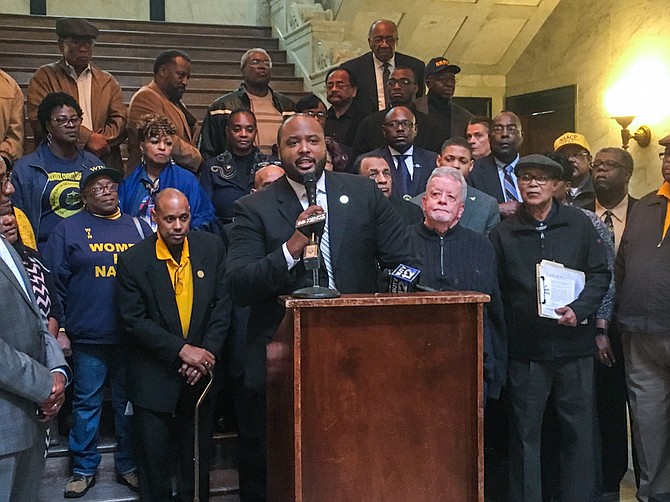
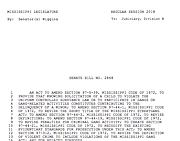
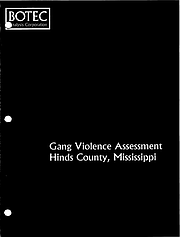
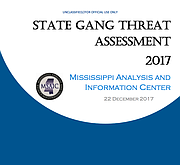
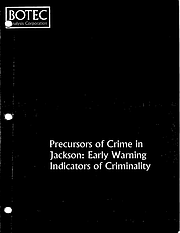


Comments
Use the comment form below to begin a discussion about this content.
comments powered by Disqus